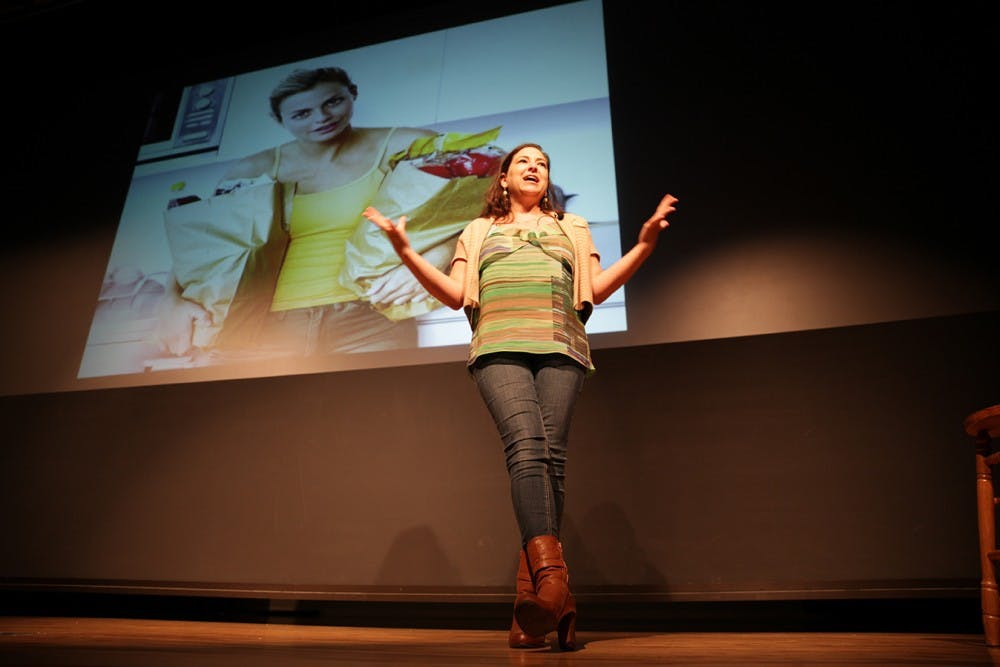Setnick is a senior fellow at Remuda Ranch, a treatment center for women and girls with eating disorders. She developed the Eating Disorders Boot Camp, a training program provided to sports dieticians and nutritionists at UNC.
Setnick said the idea of talking about food and eating seems simple, but most oftentimes is not.
“We should all be able to feel comfortable talking about our food, and the struggles we sometimes have with it,” Setnick said.
Setnick said the goal for the night was for students to go back to when they were children and paid attention to internal cues of hunger, rather than external cues like social pressures such as media and body-shaming.
Setnick showed an image of a birthday card with a picture of an infant with certain body parts pointed out, such as “pudgy thighs,” “saggy chest,” “fleshy arms” and “flabby tush,” as an example of body-shaming portrayed as humorous by advertisements.
Setnick said even without media, advertisements and other outside sources, people would still have awareness issues surrounding food because perceptions of body image have been unknowingly tied to eating.
She encouraged students to be introspective about their eating by minimizing distractions while eating.
“I don’t know what is best and most healthy for you,” Setnick said. “I want you to look within and figure out what you’re doing because it’s healthy for you versus what you’re doing because you heard it somewhere online.”



